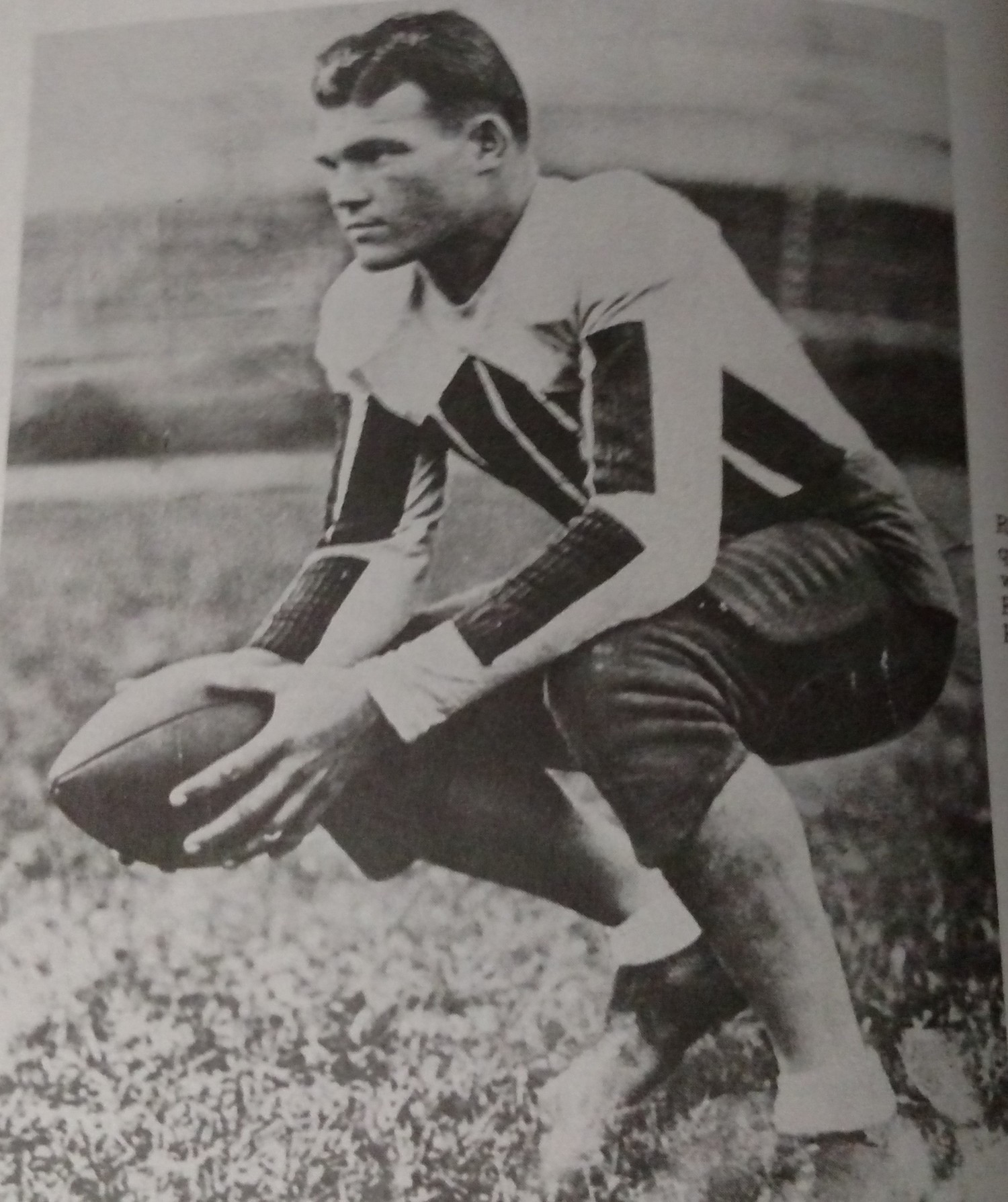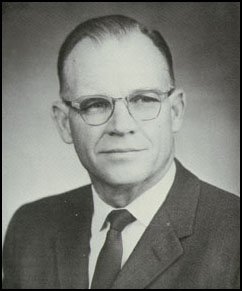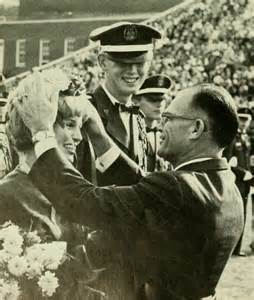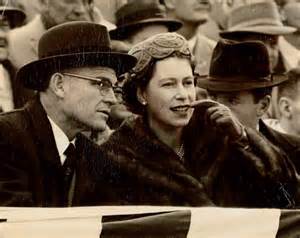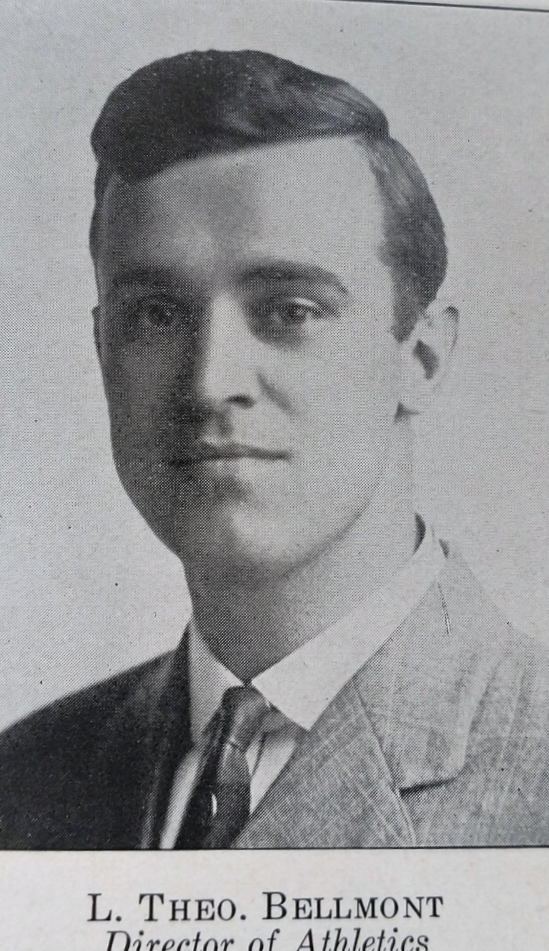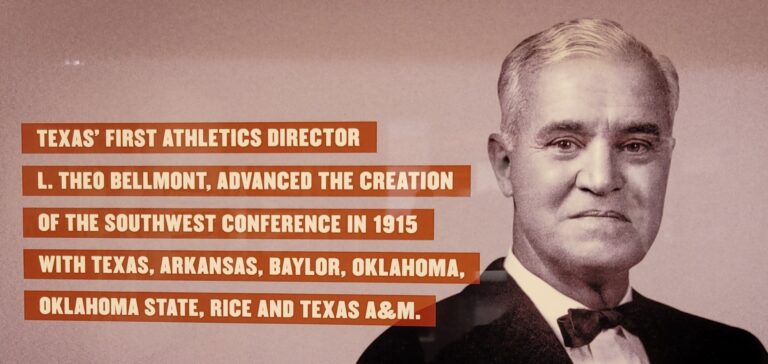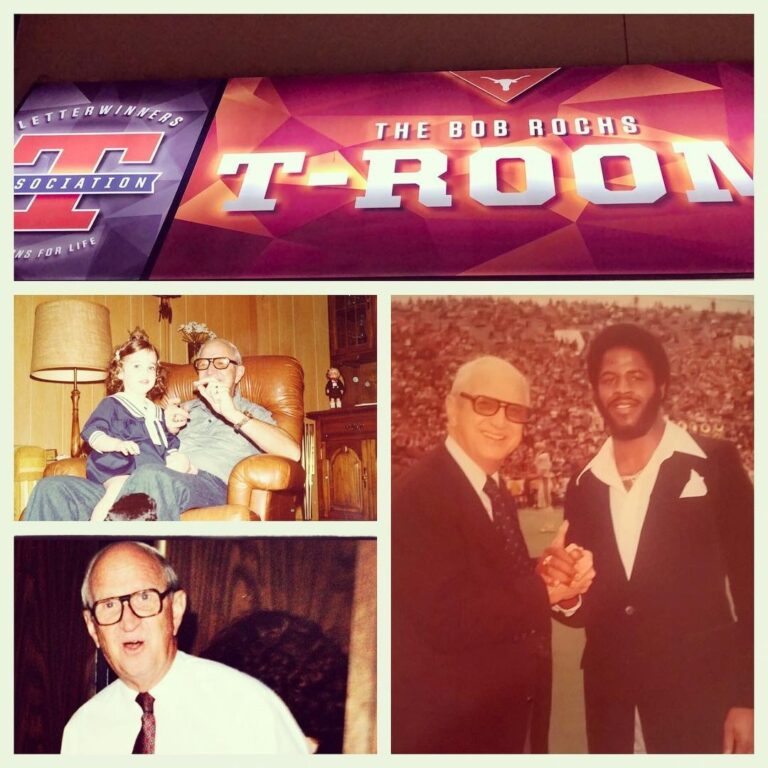Wilson Homer “Bull” Elkin
Wilson Homer “Bull” Elkins (1909-1994) was a Great Longhorn athlete who served as President of The University of Maryland from 1954 to 1978. His story is chronicled below.
-
Played for UT’s first basketball team to compete in Gregory Gym in 1931
-
Helped UT win 1932 SWC track title
-
Earned eight letters in three sports
-
Rhodes Scholar at Oxford from 1933-36
-
Phi Beta Kappa and served as UT Student Association president
-
Former president of The University of Maryland and the host of Queen Elizabeth
According to Longhorn Hoops the History of Texas Basketball by Richard Pennington Captain Bull Elkins refuses to play any more basketball games for Coach Walker after Walker is accused of taking some of the Texas players complimentary tickets and selling for his own benefit. Some of the other team members ask the UT administration to dismiss Coach Walker.
Wikipedia states the Elkins completed his Bachelor of Arts and Master of Arts degrees simultaneously from the University of Texas in Austin in 1932, while earning a national reputation as a football star and acquiring the nickname of “Bull” due to his prowess on the gridiron.
The following year he attended Oxford University as a Rhodes Scholar where he obtained a doctoral degree. He returned to Austin to teach history before going to San Angelo Junior (now State) College in 1938 where he served as president for ten years.
From Wikipedia, the free encyclopedia
Elkins earned both an A.B. and an M.A. in 1933 at the University of Texas, where he was a football star. He was a Rhodes Scholar at Oxford University, where he completed a doctorate. From 1938 to 1948, he served as president of San Angelo Junior College. He left San Angelo to become president of Texas Western College in El Paso, now the University of Texas El Paso, where he remained until 1954.
At the University of Maryland, Elkins emphasized basic subjects and strict academic standards. In 1957, he unveiled the Academic Probation Plan, which subjected 1,550 students — 18 percent of the undergraduate enrollment — to expulsion because their averages fell to below a C. Fourteen percent were sent home.
By 1964, 77 percent of freshmen came from the top half of their high school classes, and Phi Beta Kappa — which had turned down Maryland twice before — established a chapter.
He oversaw the establishment of a faculty government and administered a major expansion and improvement of the physical plant, including the construction of McKeldin Library and the Computer Science Center.
A 1976 accreditation committee praised the “campus-wide concern for good teaching” Elkins had instilled.
Elkins stepped down in 1978 at the state’s mandatory retirement age of 70.
A building, constructed in 1979, was named after Elkins. The Elkins Building, located in Adelphi, Maryland, houses the University System of Maryland administration.
Dr. Elkins died in Baltimore in March 1994.Flagship Institution of the University System of Maryland
University of Maryland, College Park, MD 20742, USA 301.405.1000
Copyright 2013 University of Maryland | Privacy
Contact us with comments, questions and feedback
